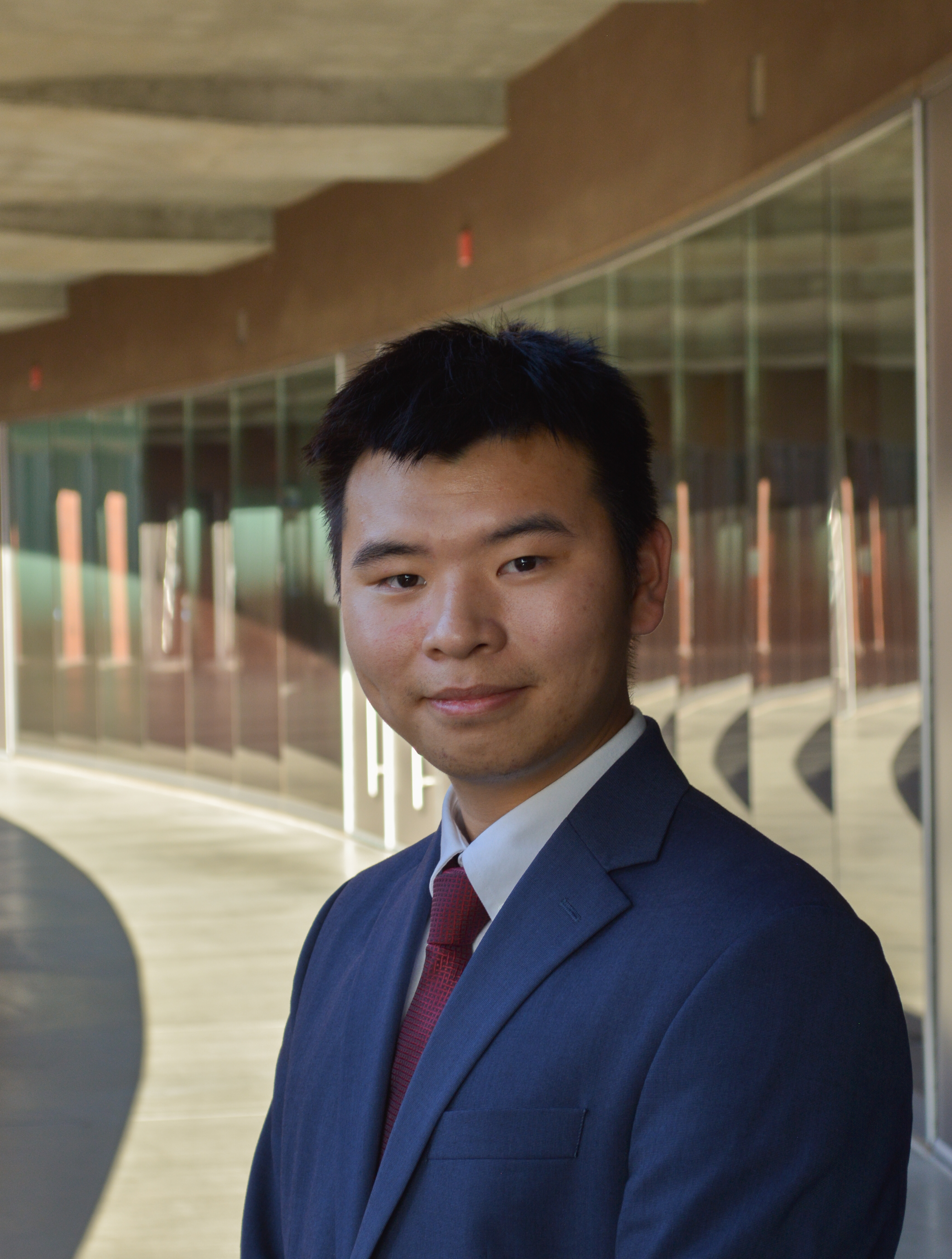
Student economists share fresh insights in short paper competition
This spring, ASU students competed for cash prizes and to earn a chance to present at the W. P. Carey Research Ideation Seminar.
ASU’s Department of Economics hosted its third annual short paper competition this spring, allowing students to win cash prizes and earn a chance to present at the W. P. Carey Research Ideation Seminar.
"It's exciting to see students apply the economics that they are learning in the classroom to real-world issues," said Kelvin Wong, clinical associate professor of economics and executive director of undergraduate programs. "I'm always amazed by the variety of applications from students and their creativity in how they approach answering the questions they pose."
The competition encouraged students to explore and analyze current economic events in a research-backed essay. Organizers split the competition into two categories: Students submitted to Division A if they were enrolled or had not taken ECN 312: Intermediate Microeconomic Theory. Division B included submissions from students who had completed the course. Essays were limited to 1,500 words and evaluated for originality, analytical depth, and writing quality. A panel of economics faculty members, including Associate Professor of Economics Galina Vereshchagina, Clinical Assistant Professor of Economics Carlos Pulido Hernandez, Clinical Associate Professor of Economics Fernando Bertran, Clinical Assistant Professor of Economics Kartik Verma, Assistant Chair and Clinical Professor of Economics Cara McDaniel, Clinical Associate Professor of Economics Joana Girante, and Clinical Assistant Professor of Economics Mehrdad Esfahani, judged the submissions and winners were required to complete an interview process with the panel.
Prizes included $300 for first place in each division, $175 for second, $100 for third, and $50 for fourth. Funding came from the Centennial Professorship Award, which Wong won in 2022 for his commitment to outstanding leadership in and outside the classroom.
"Thank you to the professors who served as judges, and kudos to all the students who applied; we enjoyed reading the papers," said Wong. "I encourage anyone who wants a deeper understanding of the world around them to join the competition next year!"
Here are the winners and their key takeaways from the competition:
Division A:
- Brian Liang (BS Economics '28):
 Participating in the short paper competition was a rewarding opportunity that allowed me to explore the real-world effects of economic policy. My paper, "U.S. Tariffs and the Economy: The Cost of Protectionism on Consumers and the Economy," focused on the historical use of tariffs and their modern-day implications for consumers and our economy. Throughout the research, I gained a deeper appreciation for how economic policies shape our day-to-day lives and influence international trade. While some of the data initially surprised me, connecting the dots across different areas of economics only deepened my interest in the field. This contest challenged me to think critically, communicate complex ideas clearly, and make connections between theory and current events. More than anything, applying what I've learned in the classroom to produce something meaningful was a unique and fun experience!
Participating in the short paper competition was a rewarding opportunity that allowed me to explore the real-world effects of economic policy. My paper, "U.S. Tariffs and the Economy: The Cost of Protectionism on Consumers and the Economy," focused on the historical use of tariffs and their modern-day implications for consumers and our economy. Throughout the research, I gained a deeper appreciation for how economic policies shape our day-to-day lives and influence international trade. While some of the data initially surprised me, connecting the dots across different areas of economics only deepened my interest in the field. This contest challenged me to think critically, communicate complex ideas clearly, and make connections between theory and current events. More than anything, applying what I've learned in the classroom to produce something meaningful was a unique and fun experience!
- Edward Moore (BS Mathematics '27):
 The idea for my paper came to me while planning a birthday trip — a time when economics usually feels irrelevant. The short paper contest allowed me to think about something fun and a passion of mine in a different way. As I researched the topic, I noticed concepts I learned about in my classes. I began the paper with preconceived notions about the ski industry, but the research challenged them. Overall, it was a great way to recognize and apply the concepts and theories I learned in class.
The idea for my paper came to me while planning a birthday trip — a time when economics usually feels irrelevant. The short paper contest allowed me to think about something fun and a passion of mine in a different way. As I researched the topic, I noticed concepts I learned about in my classes. I began the paper with preconceived notions about the ski industry, but the research challenged them. Overall, it was a great way to recognize and apply the concepts and theories I learned in class. - Coleton Potter (BS Finance '24): Exploring the economic relationship between NASA and the private space sector taught me about the government’s vital role in regulating and developing markets. Researching the market for space flight taught me about the value of increased privatization within the economy. The increased privatization of this market has allowed for economic growth and immense cost savings for taxpayers. Analyzing current economic events has developed my interest in economics by helping me connect what I learn in the classroom with the real world.
- Pragnyatejas Balemarthy (BS Finance '28): Writing this paper challenged many of my assumptions. Patterns I expected — such as linear relationships between spending and outcomes — often broke down under closer analysis, revealing deeper structural factors. Interpreting the data forced me to go beyond surface-level trends and understand the institutional or historical forces behind them. This process taught me to be skeptical of neat narratives and more rigorous in how I build arguments. It also made economics feel less abstract and more like investigative work — uncovering why things are the way they are, and how they might change.


Division B:
- Aiden Easter (BS Economics '26): While researching my thesis, I was inspired to explore Buy Now, Pay Later services after reading about the predatory history of payday loans and their impact on vulnerable populations. Exploring how policy affects low-income communities has become a central interest of mine, and I wanted to examine whether BNPL programs capitalize on the same perverse incentives that less overtly payday loans offer. The regulatory environment surrounding them is still underdeveloped, creating space for a gray area and exploitation. Writing this paper on analyzing modern consumer behavior and trends helped develop normative insight that can guide how we balance the freedom of markets with the risks of dangerous consumer behavior and predatory practices.
- Jack Carty (BS Economics '25, MS Economics '27): I didn’t expect a short paper on government data to lead me into such a strange and revealing story, where spreadsheets vanish overnight, political incentives distort public records, and government suppresses the fuel of innovation. Researching this topic made me realize that data is one of the most important and strangest economic goods we have: cheap to share, powerful when hoarded, and capable of reshaping entire markets and institutions. I appreciate how economics offers a framework to cut through the noise and make sense of who benefits, loses, and why. More than anything, I remembered why I was drawn to economics in the first place: It's a way of thinking that helps explain why some things feel unfair, and how, underneath it all, it isn’t random.
- Emma Wymore (BS Economics/Political Science '26): The short paper competition allowed me to explore the history behind headlines I've seen about President Trump's trade war, especially in North America. As an economics and political science student, I find the unraveling of the trade war fascinating, dare I say tariff-ying. Thus, I enjoyed applying what I've learned from my majors, specifically in making connections between classes like ECN 306: Survey of International Economics and POS 361: American Foreign Policy. As in all of economics, the core of the issue is balancing trade-offs, and the angle I found most compelling was that the jobs lost to Mexico due to the North American Free Trade Agreement remedied the larger losses that could have resulted from China's rise to power following its ascension to the World Trade Organization. Nonetheless, many still lost their livelihoods, and a question remains for me: How can we support the "losers" of trade? As I argue in the paper, the data and literature do not support protectionism as a solution, and economists hotly debate the efficacy of other solutions, like the now-expired Trade Adjustment Assistance Program. I plan to use this paper as a foundation for my honors thesis, which I will defend next year.
- Weijun Deng (BS Global Logistics Management '25): This competition taught me more about how tariffs work — their potential benefits and how they can cause us trouble. Learning about this process was interesting: Tariffs are an economic tool that can help boost domestic productivity while simultaneously acting as a double-edged sword that can cause trouble. I don't think tariffs have affected my life, but I don't know about the future. This competition was a great chance to learn about economics while allowing students like me to understand better the subject and how economic graphs work.p



Learn more about the economics short paper competition.
Latest news
- Ethical leadership: Good policy may prompt bad behavior
New research findings reveal how managerial approaches to integrity influence team morale and…
- W. P. Carey alum Paridhi Saboo found passion for analytics and real estate during undergraduate journey
Thanks to the many opportunities available to students at W. P.
- Here's how artificial intelligence is impacting health care
Artificial intelligence is rapidly becoming integral to every facet of health care, from…